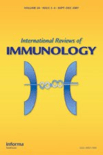
INTERNATIONAL REVIEWS OF IMMUNOLOGY
Scope & Guideline
Advancing the Frontiers of Immunological Research
Introduction
Aims and Scopes
- Investigation of Immune Mechanisms:
The journal consistently publishes research examining the underlying mechanisms of immune responses, including both innate and adaptive immunity, and their roles in various diseases. - Therapeutic Innovations in Immunology:
A significant focus is placed on novel therapeutic approaches, such as immunotherapy, vaccine development, and the use of biological agents to modulate immune responses. - Interdisciplinary Approaches:
The journal promotes interdisciplinary research, integrating immunology with other fields such as microbiology, oncology, and bioinformatics, to provide a holistic understanding of immune interactions. - Emerging Infectious Diseases:
The journal addresses the immunological aspects of emerging infectious diseases, notably the response to new pathogens and the immune challenges posed by pandemics, such as COVID-19. - Role of Metabolism in Immunity:
Research exploring the interplay between metabolism and immune function has become a core area, highlighting how metabolic pathways influence immune cell behavior and disease outcomes.
Trending and Emerging
- Cancer Immunotherapy:
There is a notable increase in research related to cancer immunotherapy, including CAR-T cell therapy and immune checkpoint inhibitors, underscoring the growing importance of harnessing the immune system against tumors. - Microbiome and Immunity:
Research exploring the relationship between the gut microbiome and immune responses is gaining traction, highlighting its role in health and disease, particularly in autoimmune and inflammatory conditions. - Single-Cell Analysis Techniques:
The adoption of single-cell RNA sequencing and other high-resolution techniques is on the rise, allowing for detailed profiling of immune cell populations and their functional states in various contexts. - Immunometabolism:
The integration of immunology with metabolic research is emerging as a key theme, focusing on how metabolic pathways influence immune cell function and contribute to disease pathology. - Regulatory T Cells and Immune Tolerance:
There is an increasing interest in understanding the role of regulatory T cells in maintaining immune tolerance, particularly in the context of autoimmune diseases and transplantation.
Declining or Waning
- Traditional Vaccine Research:
Research focused on traditional vaccine formulations and methodologies has decreased, possibly as the field shifts towards innovative and personalized vaccine strategies. - Basic Mechanisms of Disease:
There seems to be a decline in publications solely dedicated to basic immunological mechanisms in diseases, with a growing preference for studies that connect these mechanisms to therapeutic applications. - Historical Perspectives on Immunology:
Papers that provide historical insights or reviews on classical immunological concepts are less frequent, as the focus has moved towards cutting-edge research and contemporary issues in immunology.
Similar Journals

Immunity Inflammation and Disease
Connecting researchers to foster collaboration in immune science.Immunity, Inflammation and Disease is a premier open-access journal published by WILEY, dedicated to advancing the field of immunology and allergy. Launched in 2013, this journal has established itself as a significant platform for researchers and professionals to disseminate high-quality research findings and innovative insights that address critical issues in immune responses and inflammatory diseases. With an impact factor that reflects its growing influence and a current ranking in Q3 for Immunology and Q2 for Immunology and Allergy, this journal serves a diverse audience keen on exploring cutting-edge developments. Researchers are encouraged to submit their work to share their findings with a global reach, foster collaboration, and enhance the understanding of immune mechanisms and therapeutic strategies. Accessible since its inception, Immunity, Inflammation and Disease is committed to open science, ensuring that vital research is freely available for the advancement of knowledge within the academic community and beyond.
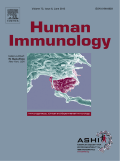
HUMAN IMMUNOLOGY
Unveiling the Complexities of Human ImmunologyHUMAN IMMUNOLOGY, published by Elsevier Science Inc, serves as a critical platform for disseminating research in the fields of immunology and allergy, as well as various aspects of miscellaneous medicine since its inception in 1980. With an ISSN of 0198-8859 and E-ISSN 1879-1166, this journal is pivotal for researchers and practitioners looking to advance their understanding of human immune responses and related conditions. The journal currently holds a respectable position within its field, as highlighted by its 2023 Scopus ranks—#114/233 in Immunology and Allergy and #132/236 in Immunology and Microbiology. Moreover, it maintains a Q2 quartile ranking in both Immunology and Allergy and miscellaneous Medicine, underscoring its influence and reach within the scientific community. Although it does not currently offer Open Access options, HUMAN IMMUNOLOGY remains dedicated to providing valuable insights and fostering academic discourse within its discipline, characterized by a rigorous peer-review process and a focus on innovative research trajectories.
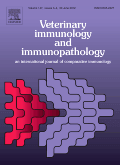
VETERINARY IMMUNOLOGY AND IMMUNOPATHOLOGY
Uncovering the secrets of disease resistance in animals.Veterinary Immunology and Immunopathology is a premier journal published by Elsevier, dedicated to advancing the field of veterinary science through rigorous investigations into the immunological mechanisms that underpin disease resistance, pathogenesis, and therapeutic interventions in animals. With an established history since 1979, this journal has consistently provided a platform for high-quality research, bridging the gap between immunology and veterinary medicine. The current impact factor reflects its significance within the field, particularly noted for its Q3 ranking in Immunology and Q2 in miscellaneous Veterinary categories as of 2023. The journal caters to a diverse audience, from seasoned researchers to students, by publishing original research, reviews, and case studies that explore pivotal topics such as vaccine development, immune response in various species, and the role of genetics in immunological disorders. Notably, it is indexed in Scopus, where it ranks in the top percentile of veterinary science disciplines, enhancing its visibility and impact within the scientific community. For those seeking to stay at the forefront of veterinary immunology, this journal is an invaluable resource.
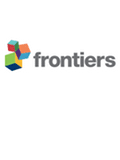
Frontiers in Immunology
Advancing Immunological Insights for a Healthier TomorrowFrontiers in Immunology is a leading open-access journal published by FRONTIERS MEDIA SA since 2010, dedicated to advancing knowledge in the field of immunology. With an impressive Q1 ranking in both Immunology and Allergy as of 2023, this journal exemplifies excellence in research dissemination, positioning itself among the top 22% of relevant literature in the discipline. The journal, based in Switzerland, emphasizes its commitment to open science by ensuring all published research is freely accessible, fostering collaboration and innovation among researchers, professionals, and students alike. With substantial visibility demonstrated by its ranks within the Scopus database—ranked #52 out of 233 in Immunology and Allergy, and #58 out of 236 in Immunology and Microbiology—Frontiers in Immunology serves as a vital platform for cutting-edge research. Researchers are invited to contribute original investigations and reviews that expand the understanding of immune mechanisms, therapeutic advancements, and clinical applications, making it a cornerstone for those looking to push the boundaries of immunological science.
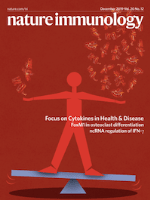
NATURE IMMUNOLOGY
Connecting researchers to the forefront of immune system studies.NATURE IMMUNOLOGY is a premier academic journal published by NATURE PORTFOLIO, dedicated to advancing the field of immunology. With an impressive impact factor that reflects its esteemed position, this journal ranks in the top quartile (Q1) of renowned categories, including Immunology and Allergy. Serving as a crucial platform for researchers, professionals, and students, NATURE IMMUNOLOGY showcases cutting-edge research, comprehensive reviews, and insightful perspectives that drive innovation in immunological science. Based in the United Kingdom, this journal has been a vital contributor to the global discourse on immune responses and related diseases since its inception in 2000. Researchers can benefit from its rigorous peer-review process, ensuring that only high-quality studies are disseminated, thus enhancing their academic pursuits and practical applications. Explore the latest findings and trends within this flourishing discipline, making NATURE IMMUNOLOGY an essential resource for anyone engaged in the study of the immune system.
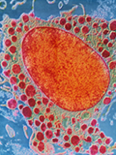
Annual Review of Immunology
Elevating Knowledge in Immunology and AllergyThe Annual Review of Immunology, published by Annual Reviews, is a premier journal that has been contributing to the field of immunology since its establishment in 1983. With a strong reputation highlighted by its impressive impact factor and top-tier rankings—holding the Q1 category in both Immunology and Immunology and Allergy, alongside significant Scopus Rankings—this journal serves as an essential resource for researchers, professionals, and students alike. The Annual Review of Immunology covers the latest advancements and critical developments in the domain, fostering a better understanding of immune responses and disorders. Although it is not an open-access journal, it provides comprehensive reviews that synthesize emerging data and trends, making it indispensable for those at the forefront of immunological research. With volumes anticipated through 2024, it continues to set the standard for high-quality scholarly publications in the field.
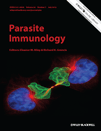
PARASITE IMMUNOLOGY
Exploring the Complexities of Immunological Defense.PARASITE IMMUNOLOGY, published by Wiley, is a leading journal in the field of immunology and parasitology, with an ISSN of 0141-9838 and E-ISSN of 1365-3024. Since its inception in 1979, it has played a pivotal role in advancing our understanding of host-parasite interactions, immunological responses to parasitic infections, and the mechanisms of immunological resistance. The journal is adeptly positioned within the academic community, currently holding a prestigious Q2 ranking in Parasitology and a Q3 ranking in Immunology for 2023, indicating its significant influence and relevance. Its comprehensive scope attracts a diverse readership, contributing to the discourse surrounding novel therapeutic approaches and emerging challenges in parasitic diseases. With a consistent convergence of research until 2024, PARASITE IMMUNOLOGY is an essential resource for researchers, professionals, and students seeking to deepen their knowledge and foster collaboration in these dynamic fields. Although it is not an open-access journal, the insights shared within its pages are invaluable for shaping future research trajectories.

IMMUNOBIOLOGY
Elevating research standards in the fields of immunity and hematology.IMMUNOBIOLOGY is a prestigious academic journal published by Elsevier GmbH that significantly contributes to the fields of hematology and immunology. With its ISSN 0171-2985 and E-ISSN 1878-3279, this journal has been disseminating impactful research since 1979, positioning itself at the forefront of immunological and hematological advances. The journal holds a commendable ranking of Q2 in Hematology and Q3 in both Immunology and Immunology and Allergy, indicating its relevance and influence within the scientific community, as reflected by its Scopus rankings. Although IMMUNOBIOLOGY operates under a subscription model, it remains dedicated to expanding knowledge across disciplines, fostering innovative research, and facilitating connections among researchers, professionals, and students. Situated in Munich, Germany, this journal is continually evolving and aims to remain an essential resource for the latest discoveries and insights in the realms of immunity and blood disorders, ultimately enhancing our understanding of complex biological systems.

Cellular & Molecular Immunology
Empowering Knowledge in the World of ImmunologyCellular & Molecular Immunology is a prestigious peer-reviewed journal published by the CHIN SOCIETY IMMUNOLOGY. As a leading journal in the fields of immunology and infectious diseases, it proudly holds a Q1 designation across multiple categories, including Immunology, Allergy, and Medicine (Miscellaneous), reflecting its commitment to excellence and impactful research. With an ISSN of 1672-7681 and an E-ISSN of 2042-0226, the journal has been essential reading since its inception in 2004, continuously gathering insights from cutting-edge studies. It ranks impressively within Scopus, with positions in the 7th, 8th, and 9th percentile in relevant categories, establishing it as a cornerstone for researchers, clinicians, and students alike. The journal offers an extensive range of original research articles, reviews, and clinical studies, ensuring that readers stay at the forefront of immunological discovery. Whether you are interested in basic immunology, infectious diseases, or evolving therapies, Cellular & Molecular Immunology serves as an invaluable resource for advancing your knowledge and engagement in this dynamic field.
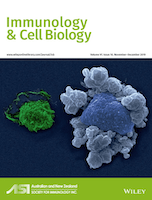
IMMUNOLOGY AND CELL BIOLOGY
Unveiling the Science Behind Immunity and Cell FunctionIMUNOLOGY AND CELL BIOLOGY, published by Wiley, serves as a prominent platform for disseminating cutting-edge research in the fields of immunology and cell biology. With an ISSN of 0818-9641 and an E-ISSN of 1440-1711, this journal has established itself since its inception in 1987, demonstrating a commitment to advancing knowledge in its disciplines through high-quality articles. Renowned for its rigorous peer-review process, it holds a Q2 quartile ranking in both immunology and cell biology categories as of 2023, showing its competitive stature in these fields. IMUNOLOGY AND CELL BIOLOGY is indexed among the elite journals worldwide, with impressive Scopus rankings, including a rank of #75/233 in Immunology and Allergy. The journal’s comprehensive scope ensures that it caters to an audience of researchers, professionals, and students who are dedicated to exploring the intricate mechanisms of immune responses and cellular interactions. Although it does not operate under an open access model, its subscription-based content remains invaluable for those seeking to broaden their understanding of immunology and cell biology. By providing a forum for significant scientific dialogue, IMUNOLOGY AND CELL BIOLOGY continues to shape the future of research in these vital areas.